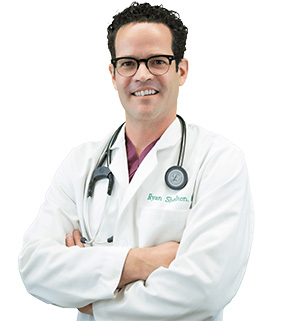You don’t want to die sooner than you have to. If you’re reading this, you’re probably wondering how to live a longer, happier, healthier life. A life in which you’re able to see your kids, even grandkids, graduate high school, graduate college, get married and create beautiful wonderful families of their own which you can engage in and enjoy for the rest of your life. Sometimes you make small choices, and you do not understand how it can change the entire trajectory of your life moving forward. Today, let’s talk about longevity genes.
There are many theories about aging, but what research has shown is that there are three important parts of the DNA which control aging and longevity. Most of our DNA codes for proteins, but these three enzymes change how the DNA responds to our environment in terms of longevity and aging. They don’t control or create new proteins. They tell the rest of our genes and the rest of our DNA, what to do.
There are two pathways when it comes to every cell in the body: growth and reproduction, or protection and maintenance. Growth and reproduction means that cells are replicating again and again to create new cells. With protection and maintenance, the cells are not replicating, reproducing, nor growing. They’re just maintaining the status quo. The three enzymes we’re going to talk about are responsible for which pathway a cell takes, and thus whether it ages or stays young.
The 3 Enzymes That Help Longevity
1. Telomerase
Every time a cell divides, the ends of the DNA (telomeres) shorten a little bit. The shorter telomeres become, the more likely that cell is to age. Telomerase is an enzyme which helps to keep those telomeres long. Studies have shown that over-expression of telomerase can increase lifespan by 30%, and under-expression can decrease lifespan by 50%.
Every cell in your body has a limit of about 50 to 60 divisions before the telomeres become too short.
If we’re able to keep the telomeres long through encouraging greater activity of telomerase, then we are able to keep our cells (and thus, ourselves) young.
2. Sirtuin
Sirtuin is the determinant gene that decides if your cells are going to go down the path of growth and reproduction or protection and maintenance. If we are able to regulate/increase sirtuin enzymes, we can push our cells towards protection and maintenance, anti-aging and longevity.
3. TOR
TOR is known to push our entire DNA into growth and reproduction. If we can decrease the activity of the TOR enzyme, we can slow the aging process.
How Can We Influence These 3 Longevity Enzymes?
Researchers have shown that a number of natural compounds, botanical agents, can increase telomerase, increase sirtuin, and decrease TOR.
Substances like resveratrol, Terminalia, Astragalus, purslane, Ashwagandha, ginseng, astatine, Cordyceps, pterostilbene etc. can all help. We’ve actually developed an important powerful supplement called Longevity Activator, where we include these agents, plus others, that can influence these three genetic genes so that we encourage protection and maintenance, and discourage growth and reproduction.
Want more secrets to living longer? Learn about 3 longevity superfoods that could actually help you add on years!
If you liked this video/article and found it useful, do share it with your friends and loved ones. Subscribe to the Youtube channel for weekly tips on new tools and techniques to improve your health and well-being.
I believe in the original meaning of the word doctor, ‘docere’, which means teacher. I’m here to help educate you on how to take care of yourself in ways that you may not have heard of before, but that are effective. I always want to hear your ideas and feedback so be sure to leave me comments below!











